algorithm
Latest

AI reveals hidden objects in the dark
You might not see most objects in near-total darkness, but AI can. MIT scientists have developed a technique that uses a deep neural network to spot objects in extremely low light. The team trained the network to look for transparent patterns in dark images by feeding it 10,000 purposefully dark, grainy and out-of-focus pictures as well as the patterns those pictures are supposed to represent. The strategy not only gave the neural network an idea of what to expect, but highlighted hidden transparent objects by producing ripples in what little light was present.
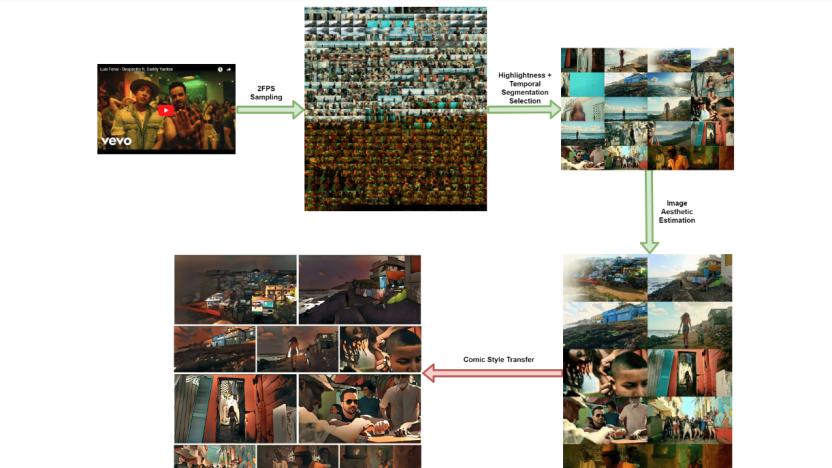
Comixify uses machine learning to turn video into comics
Tons of comic books have come to life as movies, but researchers at the Warsaw University of Technology have developed a system for turning live-action video into a comic. Comixify picks out the best frames from any video you feed it and turns it into something that looks like it belongs in the pages of a comic.
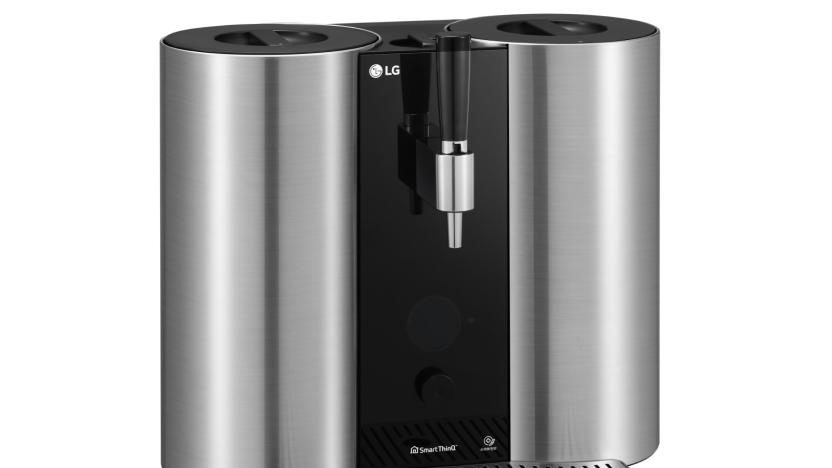
LG's automated craft beer system could make homebrewing much easier
Given the phenomenal popularity of craft beers and ales sweeping bars across the globe, it's surprising that homebrewing hasn't yet taken off to the same levels. Sure, we've seen a number of systems touting the trend -- Picobrew and Brewie are two that have done well on Kickstarter -- but it's yet to really go mainstream. But this could be set to change now that LG is getting in on things.

Most Americans believe algorithms will always be biased
If you're convinced that many algorithms are biased, you're not the only one. Pew has conducted a survey indicating that 58 percent of American adults believe algorithms and other programming will always contain some kind of human bias. That figure is partly skewed by age (63 percent of those over 50 didn't believe algorithms could be completely neutral), but even the relatively optimistic 18-29 crowd showed some distrust, with 48 percent believing there would still be some bias.
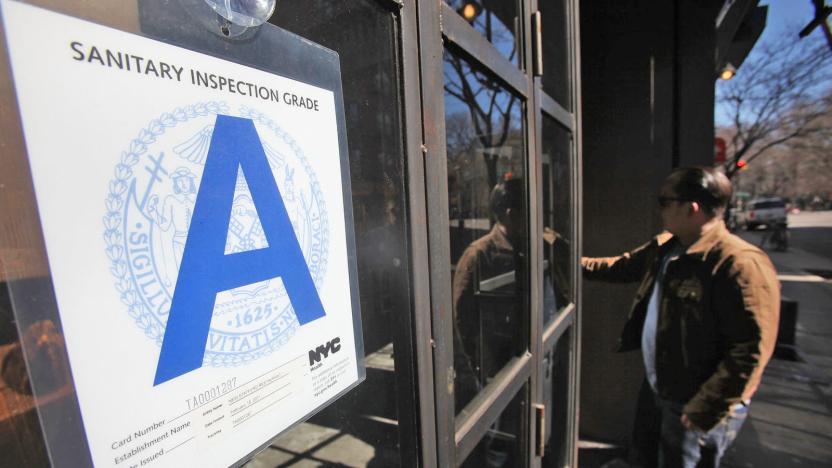
Google model identifies restaurants that could give you food poisoning
Google could soon tell you which restaurants are more likely to give you food poisoning, thanks to an algorithm that can identify lapses in food safety in near real time. Working with researchers from Harvard University, Google tested a machine-learned model in Chicago and Las Vegas to identify user search queries such as "stomach cramps" or "diarrhea", and then cross-referenced them with saved location history data -- in particular recently-visited food establishments -- from the smartphones used to make those searches.

AI-generated painting sells for $432,000 at auction
A painting created by artificial intelligence sold for $432,000 at the Christie's Prints and Multiples art auction in New York. The piece, called "Portrait of Edmond Belamy," is the first artwork made entirely by AI to go up for sale at a major art auction. It was expected to fetch between $7,000 and $10,000, making the $432,000 haul quite the shocker.

MIT's AI can identify breast cancer risk as reliably as a radiologist
Breast cancer affects one in eight women in the US. There are multiple factors involved in developing the disease, but one issue is dense breast tissue. Some 40 percent of US women have dense breast tissue, which alone increases the risk of breast cancer, and can make mammogram screening more difficult. Now, researchers from MIT and Massachusetts General Hospital (MGH) have developed an automated model that assesses dense breast tissue in mammograms as reliably as expert radiologists.

Lockly's smart locks promise better security through algorithms
Lockly thinks it has what it takes to stand out in the nascent smart lock market. Its latest model, the Secure Plus, uses a 3D fingerprint sensor combined with proprietary algorithm-based passcode tech which, together, supposedly makes the setup "virtually impenetrable," according to the company. The lock is available in deadbolt and latch-style configurations and you can still use a physical key to lock and unlock the door in case of an internet outage.

Twitter will revive the purely chronological timeline
Ever since Twitter started mucking with the timeline to insert tweets people "might have missed" or things supposedly "liked" by people they follow, some have complained they miss things. Now, Twitter has announced that in the coming weeks it will start testing a "way to switch between a timeline of Tweets that are most relevant for you and a timeline of the latest Tweets." A change that's in place now, is Twitter's "Show the best Tweets first" setting. Starting today, if a user has it turned off it will also eliminate the "In case you missed it" roundups and suggested tweets from people you don't follow. It sounds like exactly the change people have been looking for, and even pursued by setting up filters on their own like the one found at RealTwitter.com. Now, if Instagram could just get the same memo...

Twitter's shadow banning bug 'unfairly filtered' 600,000 accounts
Twitter's supposed account shadow banning, which the company says was a bug, was "unfairly filtering 600,000 accounts, including some members of Congress" in search auto-complete and results. CEO Jack Dorsey confirmed the figure during his opening statement to the House Energy and Commerce Committee Wednesday; he shared the statement in a thread of tweets.

Christie’s will auction AI-generated art for the first time
In October, Christie's Prints and Multiples art auction will include a portrait of a man named Edmond De Belamy, one of 11 portraits of the Belamy family. The man is depicted in a dark coat with a white collar, his facial features indistinct. Blank areas around the work's edges suggest it was unfinished. To many, the work may appear right at home at an auction house such as Christie's. But Edmond isn't real. In fact the entire Belamy family is a work of fiction. And the portraits weren't painted by a human, but by AI.

Fox AI predicts a movie's audience based on its trailer
Modern movie trailers are already cynical exercises in attention grabbing (such as the social media-friendly burst of imagery at the start of many clips), but they might be even more calculated in the future. Researchers at 20th Century Fox have produced a deep learning system that can predict who will be most likely to watch a movie based on its trailer. Thanks to training that linked hundreds of trailers to movie attendance records, the AI can draw a connection between visual elements in trailers (such as colors, faces, landscapes and lighting) and the performance of a film for certain demographics. A trailer with plenty of talking heads and warm colors may appeal to a different group than one with lots of bold colors and sweeping vistas.

Ada Lovelace manuscript and algorithm fetch $125,000 at auction
A manuscript written by Ada Lovelace, who's considered by many to be the first computer programmer, was just sold at auction for more than $125,000, the Guardian reports. A first edition and just one of six known copies of the book, it contains Lovelace's translation of a paper written by Italian mathematician Luigi Menabrea that describes Charles Babbage's plans for his "Analytical Engine" computing machine. The manuscript also contains copious explanatory notes and observations from Lovelace as well as a formula for calculating Bernoulli numbers that has been called the world's first computer program.

Blizzard is trying to patent ‘Overwatch’ highlight replays
The Play of the Game highlight at the end of Overwatch is arguably one of the best bits of the game. Now, nearly two years after starting the application process, Blizzard has finally confirmed it wants to patent it. Submitted in December 2016 and made public just two weeks ago, the patent describes the algorithm behind the feature, which lead designer Jeff Kaplan described last year as being "about 70 percent of where we want Play of the Game to be."

Microsoft follows Google with its own overhauled news app
Microsoft has overhauled its MSN News app for mobile. As you might expect, it's curated for your interests, offers breaking news alerts, support for widgets on both Android and iOS, continuous scrolling and a dark theme for reading at night. A blog post from Microsoft is quick to point out that its News service uses both human and AI editors to curate news stories, going so far as to explain how the process works (AI scans over 100,000 news stories from Microsoft's publishing partners, auto-suggests photos and then human editors "with local expertise" choose what's picked).

Speedy AI image analysis could help doctors during surgery
Right now, comparing 3D medical scans is a pain -- it can take two hours or more to see what's changed. And that spells trouble for surgeons, who may have to bring patients back to the operating room if a tumor removal wasn't a complete success. Thankfully, AI technology may eliminate that hassle. An MIT-led research team has crafted a machine learning algorithm that can analyze 3D scans up to 1,000 times faster than before, making it possible to study changes almost in real time -- less than a second on a PC with a fast graphics card.
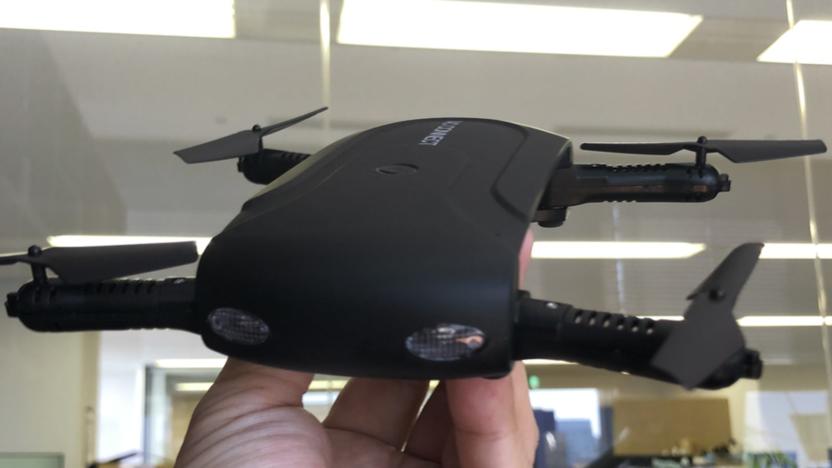
MIT algorithm ensures drones get the freshest data possible
Consider a group of drones that have to constantly exchange information on their position in order to avoid colliding with one another. Or a smart car that needs up-to-the-millisecond sensor data to avoid crashing into objects, other cars or people. While current networks are designed to send a lot of information quickly, they do not manage how fresh that information is. Researchers at MIT are digging into this issue and have created an algorithm that can help optimize how fresh the data is on a simple wireless network.

Instagram explains how it pieces together the feed we love to hate
Instagram sat down with some reporters today to explain its algorithm and dispel some myths that persist about its app, TechCrunch reports. It turns out that the three factors that largely determine how your feed is organized include your interests based on past behavior, how recently a post was shared and how often you've interacted with or been tagged with the person posting the content. Other factors that influence your feed's rankings include how often you visit Instagram, how long you're there and how many people you follow.
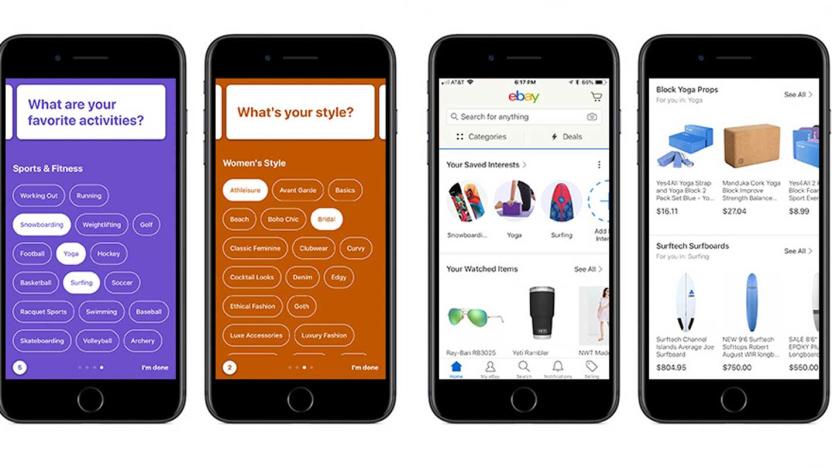
eBay uses your interests to curate a personalized store
It's not very fun to shop through online marketplaces like eBay these days -- finding something that tickles your fancy may involve wading through whole categories, or hoping that your search term will find exactly what you're looking for. eBay's solution? Have the marketplace do most of the work for you. It's launching an Interests feature that creates a customized store based on tastes you pick through a simple questionnaire. If you're a hypebeast who likes yoga and the beach, you may find the latest shoes sitting alongside mats and swimwear.

Our democracy is broken. Why can't technology fix it?
Something is rotten in the state of America. For a nation that has for so long promoted itself as a global champion of democratic ideals, we have a rather difficult time practicing what we preach. Outdated election mechanisms like the Electoral College and potential interference from hostile foreign powers aside, Americans have historically proven themselves reticent to participate in choosing their leaders. Turnout for presidential elections hasn't topped 65 percent of the eligible population in the past 100 years nor has it even come close to cracking 50 percent for midterms over the same period. During the 2016 election, just 63 percent of the U.S. civilian voting-age population showed up at the polls, according to the US Election Assistance Commission, with just five states -- Colorado, Maine, Minnesota, New Hampshire and Oregon -- managing to break 70 percent participation. Only 42 percent of Hawaiians bothered to vote.








